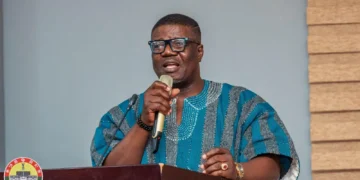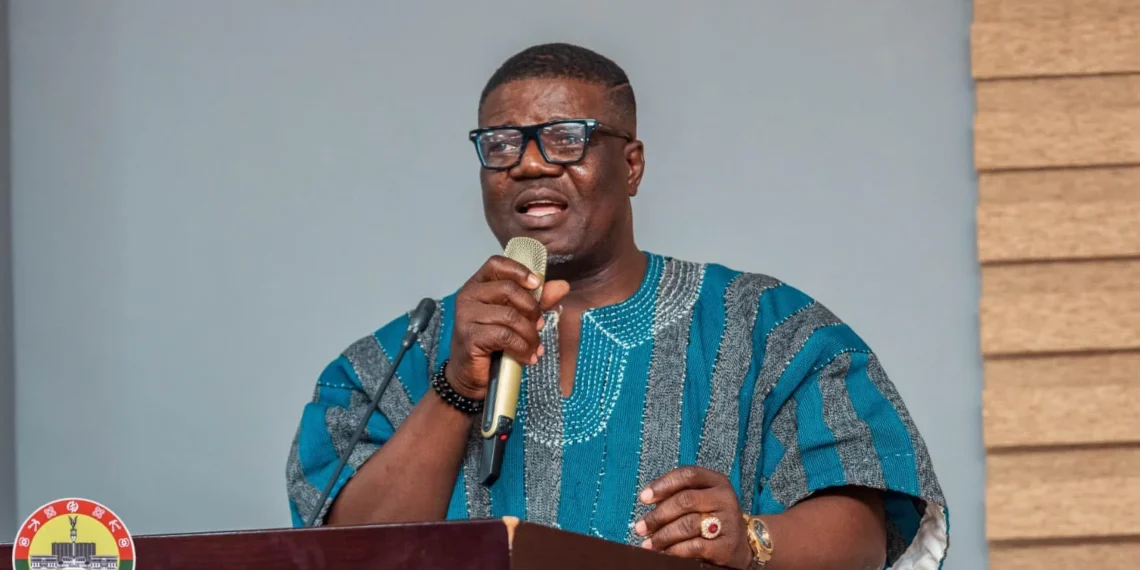Majority Chief Whip, Rockson-Nelson Dafeamekpor, has emphasized government’s unwavering commitment to fighting corruption through the strengthening of state institutions and the enhancement of transparency and accountability mechanisms.
Speaking on behalf of the Majority Leader during the 9th Biennial Conference of the African Parliamentarians Network Against Corruption (APNAC) held at the Alisa Hotel in Accra from November 7–9, 2025, Mr. Defeamekpor said corruption remains a transnational threat that undermines development, deepens poverty, and erodes public trust.
He emphasized that the fight against corruption “is not a matter of choice but of necessity,” adding that the National Democratic Congress government led by President John Dramani Mahama assumed office with a clear mandate to restore hope, accelerate development, and uphold integrity in public life.
“We recognize that the fight against corruption is not a secondary concern in governance but the very foundation upon which lasting progress is built,” he stated.
Mr. Dafeamekpor outlined several initiatives the government has undertaken to strengthen the country’s anti-corruption framework.
He cited the establishment of the Office of the Special Prosecutor (OSP) as a major milestone, explaining that the office was created to independently investigate and prosecute corruption-related offenses, a responsibility previously held by the Attorney-General’s Department.
“There cannot be any greater demonstration of commitment to fighting corruption than the establishment of a specialized institution solely dedicated to tackling corruption and corruption-related offenses,” he noted.
He further mentioned the government’s efforts to ensure the adequate resourcing and operational independence of key anti-corruption institutions such as the Economic and Organised Crime Office (EOCO), the Financial Intelligence Centre (FIC), and other related bodies.
These institutions, he said, have been significantly strengthened both logistically and technically to enable them to carry out their mandates “without fear or favor.”
Touching on fiscal accountability, the Majority Chief Whip highlighted the implementation of the Public Financial Management Act (PFMA) in 2016, describing it as a landmark reform that has transformed Ghana’s approach to managing public resources.
“The Act has enhanced fiscal discipline, improved budget transparency, and introduced stricter controls in public expenditure, making it increasingly difficult for public funds to be misappropriated,” he explained.
Mr. Dafeamekpor acknowledged that while much progress has been made, the fight against corruption is far from over.
“We are under no illusion that the battle is won, but we remain unwavering in our commitment to keep fighting,” he said.



















